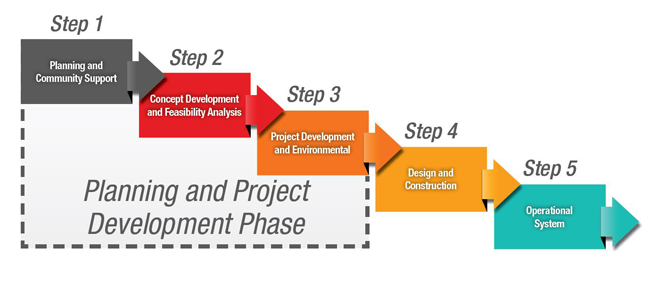Project Environmental Studies
Lead Agencies:
- Miami-Dade County Department of Transportation & Public Works (DTPW)
- Florida Department of Transportation (FDOT) District Six

FDOT District Six and DTPW have initiated Project Development and Environment (PD&E) Studies to evaluate proposed transportation improvements for the SMART Plan corridors as adopted by the Miami-Dade TPO Governing board in April 2016. The SMART Plan serves as an actionable plan that seeks to improve mobility within Miami-Dade County through the prioritization of premium transit services. The PD&E Studies serve as the next step in the planning process to make premium transit service a reality along the corridors that directly support the mobility of Miami-Dade Counties future population and employment growth.
The PD&Es will evaluate the implementation of a cost-effective, premium transit system and infrastructure within the corridors as part of an overall interconnected premium transit network. A focus on providing multimodal street improvements to accommodate Premium Transit service will be determined through an evaluation of transit options – mode, alignment, station stop locations, etc.
- Improve mobility by offering alternate transportation options with competitive travel times.
- Increase connectivity to the regional transit system and access to major destinations.
- Minimize adverse impacts to the community and businesses.
- Encourage transit oriented development and economic opportunities for corridor residents.
- Encourage pedestrian and bicycle travel to reduce the growing number of automobile trips.
- Support sustainable development including social and economic opportunities that enhance quality of life in the community.
- Improve regional connectivity and access to regional attractors in Miami-Dade and Broward Counties.
